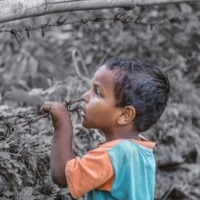Deadline: 10-Aug-2025
The Angul District Administration, in partnership with the United Nations Environment Programme (UNEP) and the United Nations Office for Project Services (UNOPS), is launching a pioneering initiative to create a local-level model of circular, green, and inclusive economic growth. This model will focus on responsible resource use and a life cycle approach, aiming to implement the first district-level roadmap for a circular and inclusive green economy.
The project funding will support a range of activities. It includes conducting a situation analysis to assess the integration potential of circular economy (CE) approaches in key sectors, and a district-wide circularity gap assessment that will result in a detailed report. This will help reaffirm and refine the priority sectors for CE in Angul. A circularity action plan will be developed alongside a monitoring framework to track progress.
Two pilot projects will be implemented: one focused on using fly ash for reclaiming wastelands, and another on creating paving blocks from a mix of fly ash and steel slag. These pilots will align with priority sectors and will be supported through technical assistance provided to the Project Management Unit (PMU). Subject Matter Experts will also be developed within the PMU to sustain ongoing and future activities.
A Centre of Excellence on circularity will be proposed to house a resource centre and market hub. Additionally, the project will design and launch a dedicated website with curated content and design. Technical and knowledge support will be provided for one international conference and up to four regional or local-level conferences. This includes preparing expert inputs, knowledge papers, presentations, and event documentation.
Outreach and communication efforts will include the development of a capacity-building strategy and training workshops, including Training of Trainers (ToT) sessions, to empower stakeholders in adopting CE practices. The total project duration is expected to be 11 months.
Key activities include a methodology for conducting a situation analysis and circularity gap assessment specifically for Angul District. The situation analysis will cover sectors such as water, plastic, electronics, textiles, aluminium, steel, and infrastructure. Gaps will be identified and opportunities explored to integrate CE measures. Stakeholder engagement will be vital, with at least three interviews in each priority sector and two half-day workshops—one for industries and one for government institutions.
Based on these activities, a strategic roadmap will be developed, outlining short-, medium-, and long-term actions. A list of immediately implementable projects for the district will also be recommended to support quick wins on the ground.
The primary beneficiaries of this initiative are the residents of Angul District in Odisha. Eligible applicants include NGOs, indigenous people’s organizations, civil society organizations, academic and research institutions, federations, local or regional government bodies, central government agencies, and non-UN intergovernmental organizations.
For more information, visit UNOPS.









































